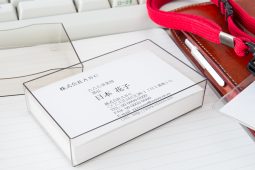WORK
Anyone who’s watched a bit of anime will have heard of the kohai and senpai relationship, and Japanese culture fans online often automatically think of the “Notice me, senpai!” trope from many a high school anime.
There are more than 1.46 million foreign workers in Japan.
Why did they decided to leave home for Japan, and how is their working life here?
As part of business traditions in Japan, there is something called ‘Meishi’. In English, these are called business cards, and used throughout the world.
1. Don't mind the pause
Coming from an English speaking background, something that really stuck out to me during Japanese business meetings and conversation, in general, was the (subjectively) long pauses.
HŌRENSŌ is a basic rule for business communication which is employed by companies throughout Japan to ensure an efficient system of information sharing.
Reputations are weird things. Japan has a reputation for extreme punctuality, where everything runs like a well-oiled machine and the train companies apologize for being a minute late, and this is generally true.
This series introduces IT engineers from abroad who are working in Japan. This time we introduce Isaac, an IT engineer from the UK.
Working in Japan can require becoming part of a very particular society, with rules and customs that differ from Japan at large. For non-Japanese workers these are often less stringent, and many times we are shown some leniency for behavior that would be considered intolerably rude coming from our Japanese co-workers.
The world of Japanese business has its own set of customs, norms and etiquette – some of which are essential to learn in order to get on well with co-workers and bosses, but some of which need only be learned if you work regularly in a context that requires them.












